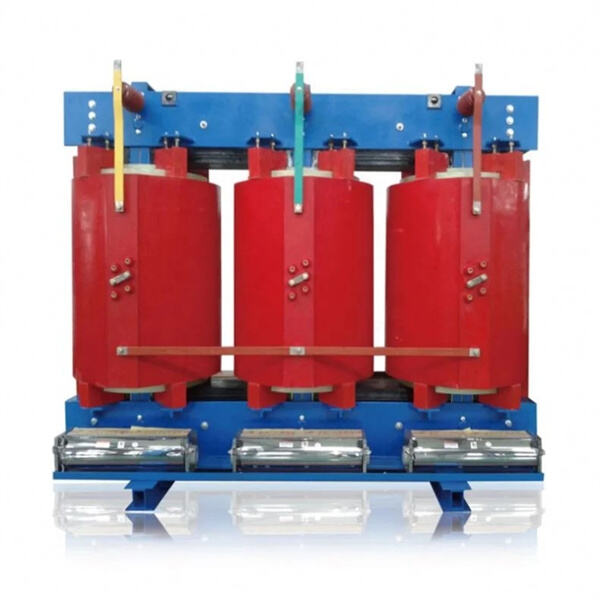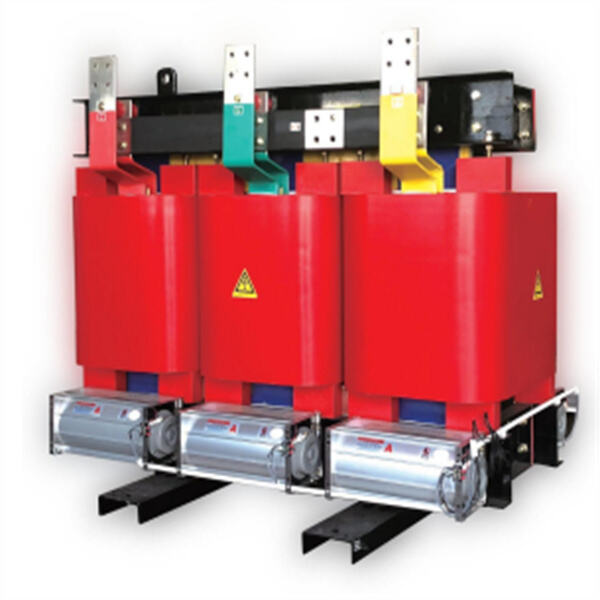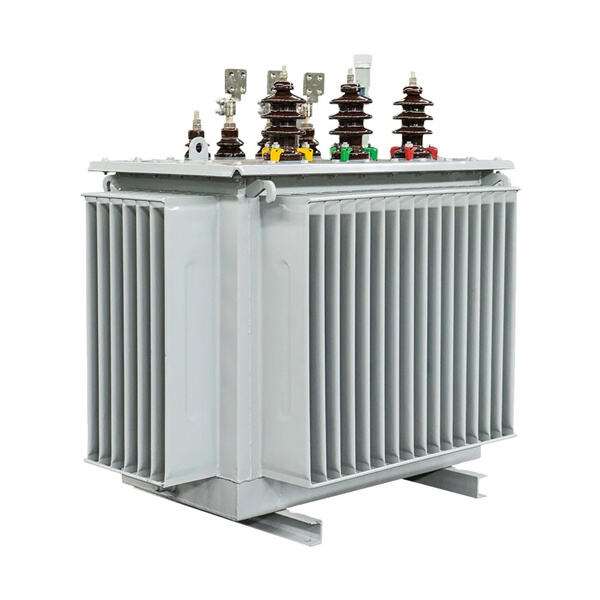ထရန်စဖော်မာများ - လျှပ်စစ်စွမ်းအင်ကို တစ်နေရာမှ တစ်နေရာသို့ လွှဲပြောင်းပေးသည့် စက်များ။ ၎င်းသည် ဗို့အားကွဲပြားသည်၊ ၎င်းသည် အဓိကအားဖြင့် ထိုဝါယာကြိုးများမှတဆင့် လျှပ်စစ်စီးကြောင်းမည်မျှခက်ခဲသည်။ ထရန်စဖော်မာအကြောင်း စဉ်းစားသောအခါတွင် ၎င်းတို့သည် ဆီအမျိုးအစားပြောင်းလဲမှုနှင့် ခြောက်သွေ့သော ထရန်စဖော်မာဟူ၍ အတန်းအစား နှစ်မျိုးရှိသည်။ ၎င်းတို့တစ်ခုစီတွင် ၎င်းတို့၏ကိုယ်ပိုင်ဂုဏ်သတ္တိများနှင့် အသုံးပြုမှုများရှိသည်။
အသုံးပြုသောကုန်ကြမ်းအမျိုးအစားများအလိုက်၊ ၎င်းသည် အသုံးအများဆုံး ဆီအမျိုးအစား ထရန်စဖော်မာဖြစ်သည်။ ၎င်းတို့သည် အားပျော့ခြင်းမရှိဘဲ ဝေးကွာသောအကွာအဝေးကို သွားလာနိုင်ရန် လျှပ်စစ်မီးရရှိရန် မရှိမဖြစ်လိုအပ်ပါသည်။ ဤထရန်စဖော်မာများတွင် ထရန်စဖော်မာကို အပူလွန်ကဲခြင်းမှ ကာကွယ်ရန်နှင့် အတွင်းပိုင်းလုပ်ငန်းဆောင်တာများ၏ ဝါယာကြိုးများကို ပျက်စီးစေရန်အတွက် အသုံးပြုသော ဆီများပါရှိသည်။ ထရန်စဖော်မာရှိ ဆီသည် အပူလွန်ကဲခြင်းမှ ကာကွယ်ရန် အတတ်နိုင်ဆုံး လုပ်ဆောင်ပြီး လျှပ်စစ်ဓာတ်ကြိုးများ ကြိုးများ ဖြတ်သွားသည့်အခါ ဖြစ်ပေါ်တတ်သည့် သဘာဝအတိုင်း ဖြစ်တတ်ပါသည်။ ဆီသည် ထရန်စဖော်မာအား အေးနေစေရန် ကူညီပေးသည်၊ ၎င်းသည် အချိန်မတိုင်မီ ပြိုကျခြင်းမှ ကာကွယ်ပေးသော ပိုမိုစံပြအခြေအနေတွင် လုပ်ဆောင်သည်။
ဆီအမျိုးအစား ထရန်စဖော်မာများကို ပျံ့နှံ့နေစေရန် အကြံပြုရန် အချက်များစွာရှိသည်။ ဤဖိဒ်များသည် အမှန်တကယ် ရှည်လျားသော သက်တမ်းလည်ပတ်မှုရှိပြီး အလွန်မြင့်မားသော ထိရောက်မှုနှင့် ပြုပြင်ထိန်းသိမ်းမှု အနည်းငယ် လိုအပ်ပါသည်။ ထို့နောက်တွင် ၎င်းတို့သည် autopilot တွင် နှစ်ပေါင်းများစွာ အလုပ်လုပ်သင့်သည်။ ဒါပေမယ့်လည်း ဒါတွေက အဘက်ဘက်က အကျုံးဝင်ပါတယ်။ ဤပြဿနာကြီးများထဲမှတစ်ခုမှာ တစ်ခါတစ်ရံတွင် ၎င်းတို့သည် ရေနံယိုစိမ့်သူဖြစ်လာနိုင်ပြီး ဤဂျစ်ကားဟောင်းများသည် အမှန်တကယ် ပတ်ဝန်းကျင်နှင့် မည်မျှ အဆင်မပြေသည်ကို ကျွန်ုပ်တို့အားလုံး သိကြသည်။ ဆီယိုစိမ့်မှုဖြစ်ပေါ်သည့်အခါ သေစေတတ်ပြီး Transformer အနီးပတ်ဝန်းကျင်ရှိ ပတ်ဝန်းကျင်ညစ်ညမ်းမှုကို တိုးစေပါသည်။ ထို့ကြောင့် ot type transformer တွင် ဖြစ်နိုင်ချေရှိသော breeches များအတွက် ပြန်လည်သုံးသပ်ရန် ထုတ်လုပ်ထားသော အင်ဂျင်အမျိုးအစားများကို စွမ်းအင်ဆီဖြင့် ကုသခြင်းနှင့်အတူ အမှန်တကယ် အရေးကြီးပါသည်။
အကယ်၍ သင်သည် ခြောက်သွေ့သော transformer အမျိုးအစားကို ရွေးချယ်မည်ဆိုပါက ထည့်သွင်းစဉ်းစားရန် များစွာ လိုအပ်ပါသည်။ အဆိုပါ ဝန်သည် ထရန်စဖော်မာ၏ ပါဝါမည်မျှ သယ်ဆောင်ရန် လိုအပ်သည် (၎င်းကို အများအားဖြင့် VA ဖြင့်ပေးသည်) ၎င်းသည် သင်လိုအပ်သော ထရပ်ကား အရွယ်အစားကို ဆုံးဖြတ်ခြင်းနှင့် ဆင်တူသည်။ အချို့သောဝန်ကိုထမ်းသောအခါ - သင်အလုပ်ကိုလုပ်နိုင်ချင်သည်။ ဒုတိယအနေနှင့်၊ insulation class သည် transformer ၏ အပူကာကွယ်ရေးနှင့် ၎င်းနှင့်ဆက်စပ်နေသော အခြားပြဿနာများအကြောင်း အကြံဥာဏ်တစ်ခုပေးသည်။ အခြားစံသတ်မှတ်ချက်တစ်ခုမှာ ထရန်စဖော်မာလည်ပတ်နေချိန်တွင် မည်မျှပူနိုင်သည်ကို ညွှန်ပြသည့် အပူချိန်တိုးလာခြင်းဖြစ်သည်။ နောက်ဆုံးအနေနဲ့၊ ဒီက transformer ဟာ တစ်ခုခုကို ပိတ်ဆို့နိုင်တဲ့ အမျိုးအစားကနေ စွမ်းအင်ကို အမှန်တကယ်အလုပ်လုပ်တဲ့ ပါဝါအမျိုးအစားအဖြစ်သို့ ပြောင်းလဲရာမှာ ဘယ်လောက်ကောင်းတယ်ဆိုတာကို သိစေတဲ့အတွက်ကြောင့် ဒါက ထိရောက်မှုရှိဖို့ လိုအပ်ပါတယ်။ Transformer ရွေးချယ်ရာတွင် ဤအချက်များအားလုံးသည် အရေးကြီးပါသည်။

ခြောက်သွေ့သော ထရန်စဖော်မာများကို ဆီများနှင့် နှိုင်းယှဉ်ပါက အကျိုးကျေးဇူးများစွာရှိပါသည်။ ပထမအချက်က သူတို့ဟာ သဘာဝပတ်ဝန်းကျင်အတွက် ပိုကောင်းတယ်။ လမ်းမှားကြည့်ရင် သူတို့ဆီယိုစိမ့်တယ်။ ၎င်းတို့သည် မီးဘေးအန္တရာယ်ကို ပိုမိုကောင်းမွန်စွာ ကာကွယ်နိုင်သောကြောင့် ၎င်းတို့သည် ယေဘူယျအားဖြင့် အသုံးပြုရန် ပိုမိုလုံခြုံပါသည်။ ဒီနေရာက လုံခြုံရေးက တကယ်အရေးကြီးတယ်။ ထို့အပြင်၊ ခြောက်သွေ့သော ထရန်စဖော်မာများသည် များသောအားဖြင့် သဘာဝတွင် သေးငယ်သောကြောင့် မတူညီသော နေရာများတွင် အံဝင်ခွင်ကျဖြစ်စေနိုင်သည်။ ၎င်းတို့သည် ဆူညံသံကြောင့် ပြဿနာဖြစ်နိုင်သည့် ကျောင်းများ သို့မဟုတ် ရုံးခန်းနေရာများ ကြိုက်နှစ်သက်သူများအတွက် ကောင်းမွန်သော အင်္ဂါရပ်တစ်ခုဖြစ်ပြီး ၎င်းတို့သည် ပြေးသည့်အခါတွင်လည်း အတော်လေး တိတ်ဆိတ်နေပါသည်။

ဆီအမျိုးအစား ထရန်စဖော်မာများအပြင် Dry type ထရန်စဖော်မာသည် ၎င်း၏ လုပ်ငန်းဆောင်တာနှင့် ဘေးကင်းသော အသုံးပြုမှုကို သေချာစေရန်အတွက် ပုံမှန်ထိန်းသိမ်းမှု လိုအပ်ပါသည်။ ဆီထရန်စဖော်မာ- ဆီအဆင့်ကို အခါအားလျော်စွာ စစ်ဆေးပါ၊ ဟောင်း သို့မဟုတ် ညစ်ညမ်းနေချိန်တွင် ပြောင်းလဲကာ ယိုစိမ့်မှုများကို ဂရုတစိုက်ရှာဖွေပါ။ ဒါမှမဟုတ် အရာတွေကို လမ်းကြောင်းမှန်ပေါ်ရောက်အောင် ထိန်းသိမ်းထားဖို့ တခြား အရေးကြီးတဲ့ စစ်ဆေးမှုတွေ အားလုံးကို ဘယ်လို ထိန်းသိမ်းမလဲ။ Dry-type ထရန်စဖော်မာများသည် ၎င်းတို့တွင်ဖုန်မည်မျှရှိသည်ကိုကြည့်ရှုခြင်းနှင့် ကောင်းစွာအလုပ်လုပ်ကြောင်းသေချာစေရန် insulation test ပြုလုပ်ခြင်းအပါအဝင် မတူညီသောပြုပြင်ထိန်းသိမ်းမှုများပြုလုပ်ရန် တောင်းဆိုပါသည်။ ဤအရာသည် ရလဒ်အနေဖြင့် Transformer ကို ဘေးကင်းပြီး ထိရောက်စွာ အလုပ်လုပ်နိုင်စေပါသည်။

ထရန်စဖော်မာတွေနဲ့ ဆက်ဆံတဲ့အခါမှာ ဘေးကင်းရေးက တကယ်ကို အလွန်အမင်း တင်သွင်းတဲ့ အပိုင်းပါ။ ထုတ်လုပ်သူဘေးကင်းရေး ညွှန်ကြားချက်များကို အမြဲလိုက်နာပါ။ နောက်ထပ်လုပ်သင့်တာတစ်ခုကတော့ ထရန်စဖော်မာတွေနဲ့ အလုပ်တွေလုပ်တဲ့အခါ ကိုယ့်ကိုကိုယ်ဘေးကင်းအောင်ထားဖို့ လက်အိတ်နဲ့ မျက်မှန်တွေလို သတိထားပြီး ပုံမှန်အသုံးပြုပါ။ နောက်ဆုံးတွင်၊ ချွတ်ယွင်းနေသော သို့မဟုတ် ချွတ်ယွင်းနေသော transformer ကို ဘယ်တော့မှ မသုံးပါနှင့်။ ထိုသို့သောအရာသည် ဆိုးရွားကြောင်း သက်သေပြနိုင်သောကြောင့် ဝန်ဆောင်မှုမရှာမီ အမြဲစစ်ဆေးရန် အကောင်းဆုံးဖြစ်သည်။